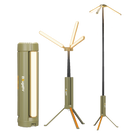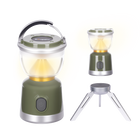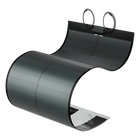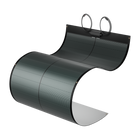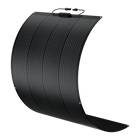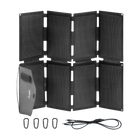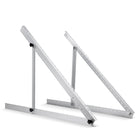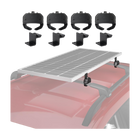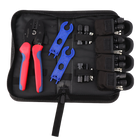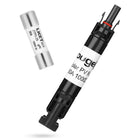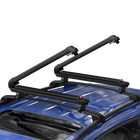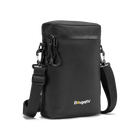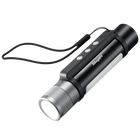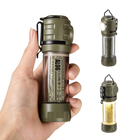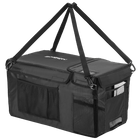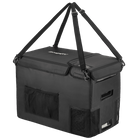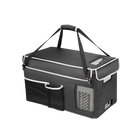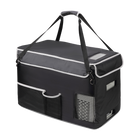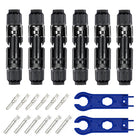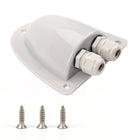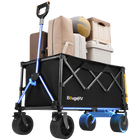How Tall Is a 5th Wheel Camper?


The allure of the open road and the comforts of home come together in the complex world of 5th-wheel campers. These large, spacious trailers hitch to the bed of a pickup truck using a specialized connector known as a fifth wheel, which provides stability and enhanced maneuverability compared to traditional travel trailers.
In this blog, we'll delve into the often-overlooked aspect of 5th-wheel ownership: camper height. From clearing low overpasses to finding suitable storage, knowing your RV's height is crucial. Join us as we explore the average heights of these highway giants, provide tips for accurate measurement, discuss legal restrictions, and prepare you for safe and hassle-free travels.
What Is the Average Height of a Fifth Wheel?
Fifth wheels, with their grand stature, typically tower above many other types of recreational vehicles. The average height for a 5th-wheel camper is between 12 and 13 feet (3.7 to 4.0 meters). However, luxury models with additional amenities can reach up to 14 feet (4.3 meters) or more. When considering height clearance for a 5th wheel, aim for at least 14 feet (4.3 meters) to ensure a safe buffer from overhead obstacles.
How to Measure a Camper’s Height?

Accurately measuring your camper's height is a pivotal step before hitting the road. Start on level ground, ensuring the trailer is properly hitched and sitting as it would when towed. Measure from the highest fixed point – usually the air conditioning unit – down to the ground. Don't rely on manufacturer specifications alone, as added accessories can alter the height.
Why Should You Know the Height of Your 5th Wheel Camper?
- Navigating Under Bridges, Overpasses, and Tunnels
One wrong move under a low bridge, and your vacation could turn into a costly repair session. Knowing your 5th wheel's exact height gives you confidence when approaching potentially tricky situations on the road.
- Road Safety Compliance
Many states have legal height limits for vehicles traveling on public roads. Knowing your camper's height ensures you adhere to these regulations and avoid potential fines or legal issues.
- Route Planning Efficiency
With the height of your camper in mind, you can better plan your travel routes using GPS systems and apps that cater to larger vehicles, ensuring a smoother trip without unexpected detours.
- Preservation of Infrastructure
By respecting height limitations, you contribute to the preservation of public infrastructure, avoiding costly damages to signs, lights, and structures that are expensive to repair.
- Considerations for Storage Facilities and Garages
Your storage solution must accommodate your RV's stature. Be aware of the maximum height clearances not only for the journey but also for the place where you'll store your camper when not in use.
- Height Restrictions at Campgrounds and Parks
Some camping spots have height limitations due to natural features like tree cover. Research beforehand to avoid surprises that might leave you with nowhere to park.
Legal Height Restrictions and Road Safety
In the US, the general maximum allowable vehicle height is 13 feet 6 inches (4.1 meters), though this can vary by state and road type. Always check the Department of Transportation (DOT) regulations for the states you plan to travel through.
Ignorance of these laws doesn't excuse non-compliance, so a bit of research can save you from traffic violations.
Checklist for RV Height Assessment and Travel Preparation
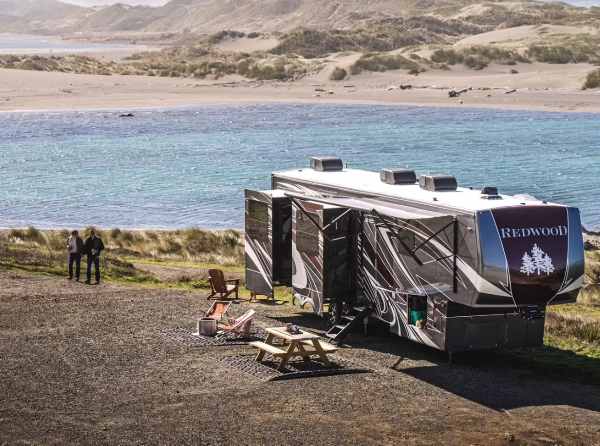
As you prepare for travel, here's a checklist to ensure your 5th wheel's height won't cause any issues:
-
Confirm your 5th wheel's precise height.
-
Plan your route, noting any low-clearance areas.
-
Investigate storage options, ensuring they can accommodate your camper.
-
Check campground and park restrictions.
-
Review state-specific height regulations.
-
Update your GPS with RV-specific settings if available.
-
Bring a 12V RV Fridge that ensures cold drinks and fresh food.

Final Thoughts
Throughout our exploration of 5th-wheel camper heights, the overarching theme has been one of preparation and awareness. By understanding and measuring your recreational vehicle's stature, you're equipped to navigate roads, bridges, and campsites with confidence. Remember that while adventure beckons, safety, and compliance are the keystones of a memorable and worry-free journey.
As we conclude, consider that Knowing your camper's height is not just practical; it's imperative. Before you set off on your next excursion, take the time to measure and document your 5th wheel's dimensions, familiarize yourself with potential obstacles, and make informed choices about where you can safely travel and stay.
Don't let height restrictions curb your enthusiasm for RV life. Instead, let that knowledge empower you to seek out new horizons confidently. Safe travels, and happy camping!











